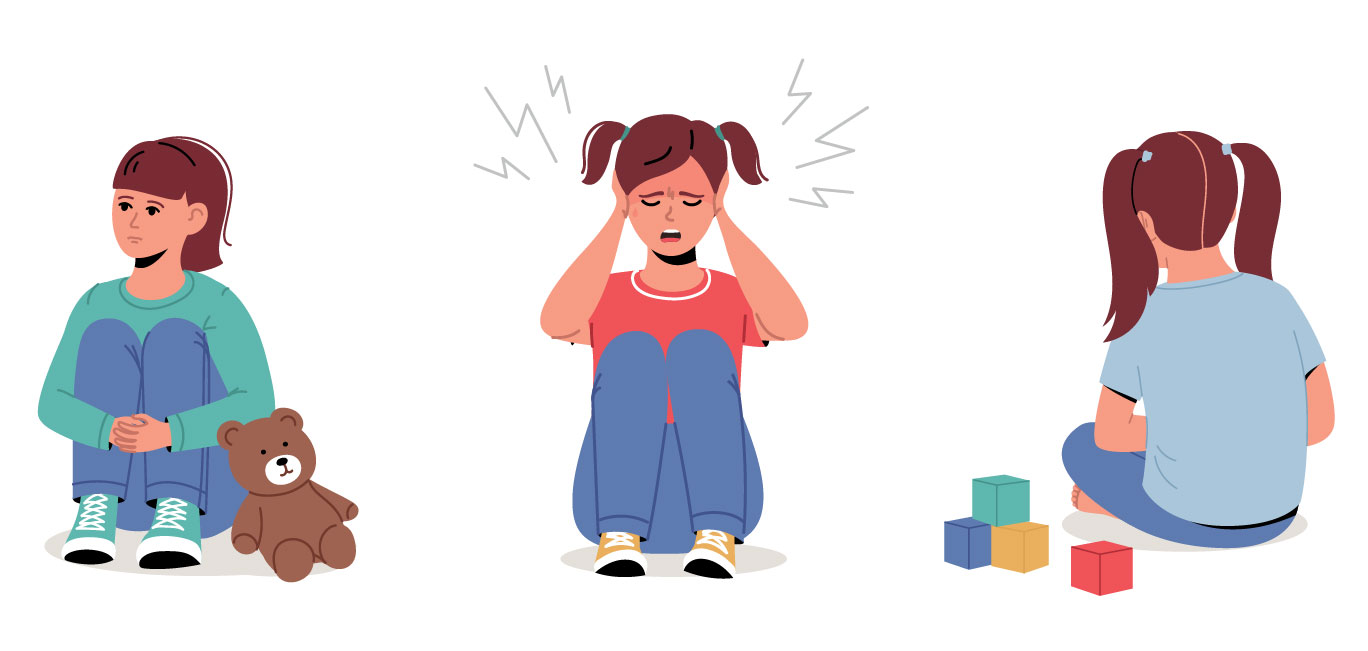Autism spectrum disorder (ASD) is a neurodevelopmental condition that can affect children’s pace of development, regulate behaviour and help them communicate effectively. These challenges may also stem from various factors, including premature birth, variations in developmental milestones, language barriers, or even a natural inclination towards introversion. Some children may experience developmental delays that naturally resolve over time. For instance, a two-year-old who has not started speaking may simply be a late bloomer. He will eventually catch up with their peers without requiring any intervention.
As a parent, it is natural to worry about our child’s development and displaying signs of autism. However, it is essential to remember that not all developmental delays or differences are indicative of autism.
Autism in toddlers – It is there or not?
Joy Johnson, a child psychologist from Mangaluru, says that toddlers who are not on the autism spectrum will have language and social skills. They will be able to communicate expressively and not have repetitive or rigid behaviours. She points out the following signs that indicate toddlers are not autistic:
- They make eye contact most of the time
- They respond to their name
- They copy your actions and words
- They can speak in simple sentences
- They ask questions
- They engage in pretend and imaginative play
- They show empathy
Social communication and interaction
Johnson explains that typically, toddlers should engage in pretend play, greet people, convey information and make demands. They should also be able to give commands and make requests as part of age-appropriate social and communication skills. In contrast, a child on the autism spectrum may not exhibit the following behaviours.
- Not smile in response to other people- They find it difficult to express social engagement through facial expressions.
- Avoid eye contact- They find it challenging to establish and maintain visual connections that are essential for social interactions.
- Not use gestures- Limited use of non-verbal communication, such as pointing or waving, which is important for conveying intentions and understanding others.
- Not interested in playing with other children- They show a lack of interest or difficulty in engaging in social play and forming connections with peers.
- Repeat everything they hear- They mimic or repeat words or phrases without understanding their meaning.
- Talk in an unusual tone- They engage in speech patterns characterised by atypical rhythm, or pitch, which may be associated with communication challenges.
- Will be babbling and speaking gibberish- They engage in nonsensical or repetitive vocalisations. This might indicate challenges in developing coherent and meaningful speech.
Understanding the complexity of autism diagnosis
Johnson says that there are many who can be diagnosed with autism, even if they can make eye contact and engage in social interactions. “However, in order to meet the criteria for an autism diagnosis, a person would need to meet a certain threshold within them,” she says. She further explains that If individuals meet the threshold within the sensory category but do not meet one for social challenges, rigid thinking, and limited interests, they are more likely to be diagnosed with sensory processing disorder (SPD) than autism, she adds.
Johnson points out that one cannot be “a little bit autistic” just because one experiences sensory overload sometimes and does not feel like socialising.
The importance of early intervention
Johnson highlights the following benefits of early intervention to promote healthy development:
- Provides resources, support and information
- Improves relationships
- Promotes future success in school
- Improves behaviour
- Makes learning fun
How to rule out autism in toddlers
Akansha Kothari, counsellor and child psychologist in Bengaluru emphasises that if you are concerned that your toddler may have autism, it is important to speak with a specialist who can evaluate their symptoms and provide a diagnosis. To rule out autism in toddlers, specialist will often use standardised developmental screening tools to assess the child’s communication, social interaction, and behaviour. These screenings may include assessments such as the Modified Checklist for Autism in Toddlers (M-CHAT). In some cases, additional medical testing may be necessary to rule out other conditions that can mimic symptoms of autism. Like, hearing tests may be performed to rule out hearing loss as a cause of delayed speech or language development.
Final thought
Autism is a complex neurodevelopmental condition, and while certain behaviours may raise questions, they do not always indicate autism. Early intervention plays a critical role in addressing developmental delays and ensuring the best outcomes for toddlers, whether they have autism or other developmental disorders. Every child is exceptional, with or without a specific diagnosis, and it is through understanding, support, and early intervention that they can reach their full potential.
















